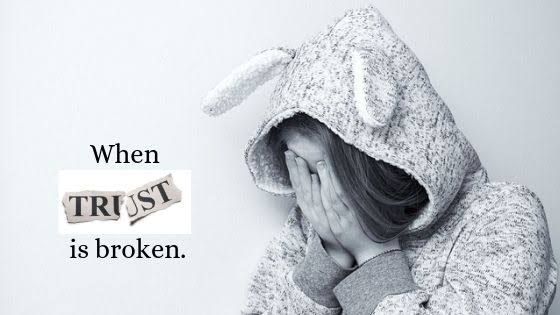
Finding out you have been deceived by someone you trusted may be a very painful and confusing situation. It makes us doubt not only the individual who deceived us but also our own opinions and capacity for character analysis. We're going to go into the intricacies of trust and examine the potential motives for someone betraying us. By learning more about what betrayal really is, we can start the healing process collectively and move on with resiliency and strength.
Our relationship with others is woven delicately with trust. Through persistent behavior, honest communication, and respect for one another, it develops over time. When we put our complete faith in someone, we know they are trustworthy, dependable, and honest. But trust is not infallible, and that's something to keep in mind. People are complicated creatures, and occasionally what they do doesn't match the faith we have in them.
Although the motivations for betrayal can differ, they frequently stem from the betrayer's inner difficulties, unresolved problems, or poor decisions. Sadly, this causes individuals to breach the confidence of others while they struggle with their own fears, anguish, or unfulfilled desires. Recognizing that betrayal is a depiction of their decisions and deeds rather than a reflection on character.
In such instances, the betrayer can have compromised their judgment by caving in to outside pressures, unfavorable influences, or temptations. They might not have given careful thought to the effects of their actions before putting their own requirements or wants first. rather’s vital to note that this does not exonerate people of blame, but rather exposes the essence of human conduct.
Betrayal has a deep and wide-ranging effect. It breaks the carefully constructed foundation of trust and leaves us emotionally betrayed, enraged, and demoralized. Additionally, it leaves us with Post Betrayal Syndrome's emotional, mental, and bodily symptoms. It's critical to recognize and respect these feelings during this trying period as a necessary step in the healing process.
The process of recovering from betrayal is life-changing and calls for self-compassion, endurance, and time. It's critical to allow yourself to grieve and deal with the suffering you're going through. Ask for help from dependable family members, friends, or a sympathetic person who specializes in betrayal recovery. They can offer you a safe, accepting environment in which to process your feelings, acquire insightful knowledge, and create practical plans for reestablishing your self- and other-confidence.
It's critical that you refrain from holding yourself responsible for the betrayer's actions as you start the mending process. Recall that trust entails vulnerability, and having put your faith in someone who later betrayed it is not a reflection on your character. Prioritize developing your own resilience and sense of self-worth.
It is an extremely unpleasant experience to learn that a person you trusted has deceived you, but it does not define who you are. You can start the healing process by gaining a thorough awareness of the intricacies of trust and the motivations for betrayal. Seek assistance from people who encourage and truly understand you, give yourself permission to completely experience and process your feelings, and gradually reestablish your confidence in other people. You may move forward and recover your capacity for trust and meaningful connections once more with patience, self-compassion, and an unrelenting commitment to grow. You'll be led to a future of restored trust and inner serenity by your fortitude and resiliency.
Upvoted. Thank You for sending some of your rewards to @null. Get more BLURT:
@ mariuszkarowski/how-to-get-automatic-upvote-from-my-accounts@ blurtbooster/blurt-booster-introduction-rules-and-guidelines-1699999662965@ nalexadre/blurt-nexus-creating-an-affiliate-account-1700008765859@ kryptodenno - win BLURT POWER delegationNote: This bot will not vote on AI-generated content